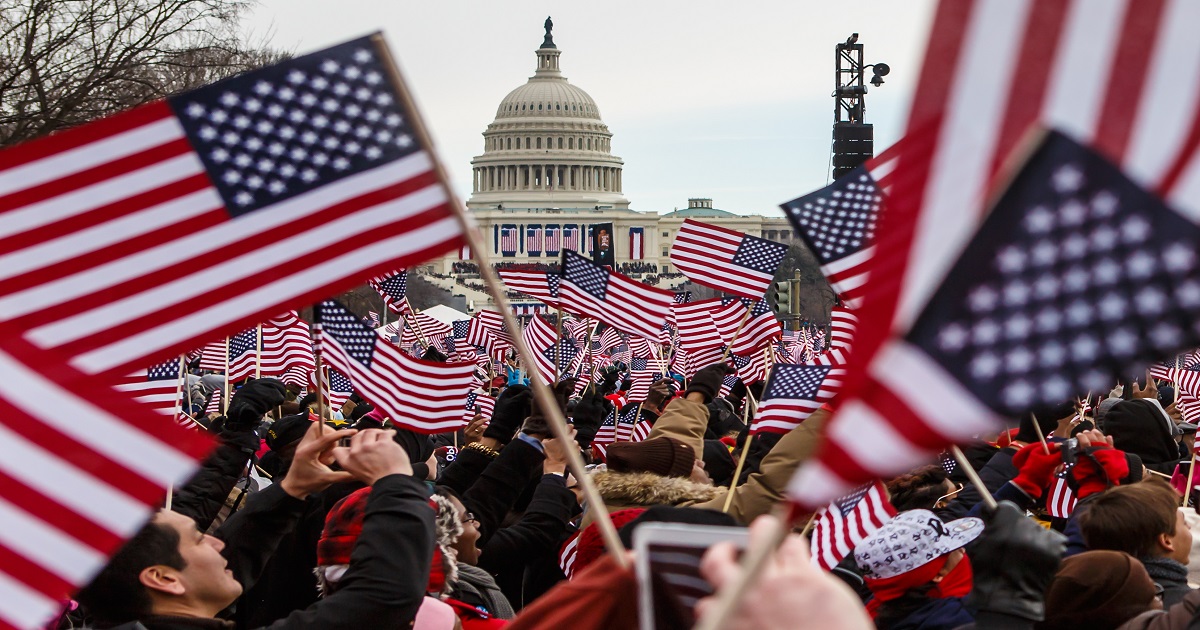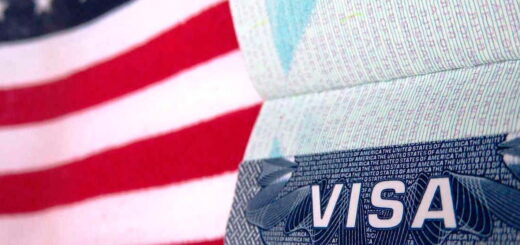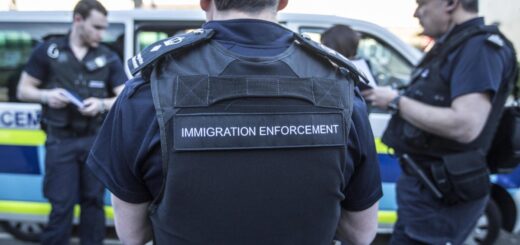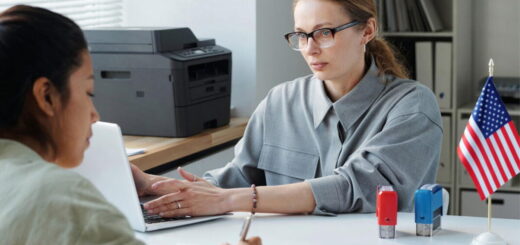U.S. Embassy Introduces New Visa Interview Rules for Nigerian Applicants Starting April 22, 2025

The United States Embassy has announced a series of important updates to the visa interview process for Nigerian applicants, marking one of the most significant procedural adjustments in recent years. The new system, which takes effect on April 22, 2025, is part of a broader effort to improve efficiency, reduce processing delays, and ensure that all visa applications are handled more accurately and securely.
According to an official statement from the U.S. Mission, the revised rules will apply to all applicants attending interviews at both the U.S. Embassy in Abuja and the U.S. Consulate in Lagos. The most notable change is the introduction of a stricter verification requirement for the DS-160 form, which is the mandatory online visa application form for all non-immigrant visa categories.
The embassy stated that all applicants must present a DS-160 confirmation page that includes a barcode beginning with AA00. This barcode must exactly match the one used when scheduling the applicant’s online appointment. In other words, the DS-160 form and the appointment booking must be perfectly aligned. Any discrepancy between the two will automatically lead to denial of entry into the consular section.
The statement read, “If the barcode number on your DS-160 form does not match the number used to schedule your appointment, you will not be permitted to enter the Consular Section, and your visa interview will not take place.” This clarification underscores the embassy’s commitment to tightening the verification process and minimizing administrative mix-ups that have caused delays or denials in the past.
The U.S. Mission further emphasized that applicants should verify their information at least two weeks before their interview date. This early confirmation gives applicants enough time to correct any errors and prevents last-minute issues that might lead to missed appointments. The embassy added that failure to confirm matching barcode information would result in automatic disqualification from the interview process.
The embassy also warned that DS-160 forms from previous applications cannot be reused under the new system. Even if an applicant has an old form stored from a past submission, they must complete a new DS-160 for every visa appointment. If any discrepancy or mistake is discovered, applicants are required to log into their AVITS account and submit a correction request no later than ten days before their scheduled interview.
In addition to matching barcode details, applicants must ensure that their appointment location corresponds with the consular office they selected on their DS-160 form. For example, if you selected Abuja while filling out your DS-160 form, you cannot attend an interview in Lagos. The U.S. Mission made it clear that consistency between the DS-160 form and the scheduled appointment location is now mandatory.
Applicants who are turned away due to barcode or location mismatches will have to correct the issue and schedule a new appointment. This must be done through their AVITS account, which is the official online platform for managing visa appointments in Nigeria. In cases where the original visa fee has expired, the applicant will be required to pay a new fee before booking another interview slot.
According to the embassy, these procedural changes are designed to make the visa application process more transparent and user-friendly while ensuring that each case is processed using accurate data. The aim is to reduce administrative errors, which have often resulted in long delays or the need for resubmission. The new system also helps the embassy manage appointment slots more efficiently, given the consistently high volume of visa applications from Nigeria.
An embassy spokesperson explained that the changes are part of a wider modernization plan that the U.S. government is implementing across several consular missions worldwide. Nigeria, being one of the largest visa processing centers in Africa, is among the first to adopt the new verification standard. The embassy believes that these updates will enhance both applicant experience and data security.
The spokesperson noted, “This update reflects our ongoing commitment to improving service delivery and ensuring a smoother visa process for all applicants. We encourage everyone to carefully review the new requirements and prepare accordingly before visiting our consular offices.”
Applicants are advised to take proactive steps to prevent errors. This includes saving a copy of their DS-160 confirmation page immediately after submission, verifying that the barcode begins with AA00, and ensuring that the appointment confirmation email reflects the same code. Before attending the interview, applicants should print both the DS-160 confirmation page and the appointment confirmation letter, as both documents will be checked at the consular gate.
For those unfamiliar with the DS-160, it is an online application form that collects biographical information, travel history, and visa purpose details. It serves as the foundation for most non-immigrant visa categories, including student, business, and tourist visas. Any errors in this form can lead to rejection or delays, making accuracy critical under the new rules.
Beyond the DS-160 update, the embassy also reminded applicants that, since January 1, 2025, all visa applicants are required to make two separate visits to the U.S. Consulate General in Lagos. The first visit typically involves biometric data collection, including fingerprints and photographs, while the second visit is for the actual visa interview. This two-visit policy is intended to improve background verification and reduce waiting times on interview day.
Many applicants have welcomed the embassy’s move toward a clearer and more transparent process. Travel agents and immigration consultants in Nigeria say the change will help applicants avoid unnecessary complications that often arise from mismatched information or incomplete forms. By ensuring that all DS-160 details are consistent, applicants can avoid being turned back on interview day a common issue that has frustrated many travelers in the past.
Still, the updates also mean applicants must pay closer attention to the application process than before. Even small errors, such as mistyping a barcode or selecting the wrong consular location, could lead to delays or rejection. The embassy has therefore advised Nigerians to start their application early, verify all information multiple times, and keep copies of all confirmation pages for record purposes.
Those applying through agents or consultants are encouraged to personally review every detail entered on their behalf. The embassy emphasized that ultimate responsibility lies with the applicant, not with a third-party representative. As such, applicants should always ensure that their information is accurate, current, and matches across all documents.
The U.S. Mission concluded its statement by reaffirming its dedication to maintaining transparency, fairness, and efficiency in all visa-related operations. The new guidelines, it said, are intended to create a more predictable and organized process that benefits both applicants and consular staff.
In summary, beginning April 22, 2025, all Nigerian visa applicants must ensure that the barcode number on their DS-160 form matches the barcode used when scheduling their appointment. They must also attend their interview at the same consular office chosen on their DS-160 form. Old DS-160 forms cannot be reused, and any corrections must be made at least ten days before the appointment date through the applicant’s AVITS account.
By following these updated rules carefully, Nigerian applicants can avoid unnecessary disruptions, save time, and improve their chances of a successful visa interview experience. The embassy’s message is clear: accuracy, preparation, and attention to detail are now more important than ever for anyone seeking to travel to the United States from Nigeria.













